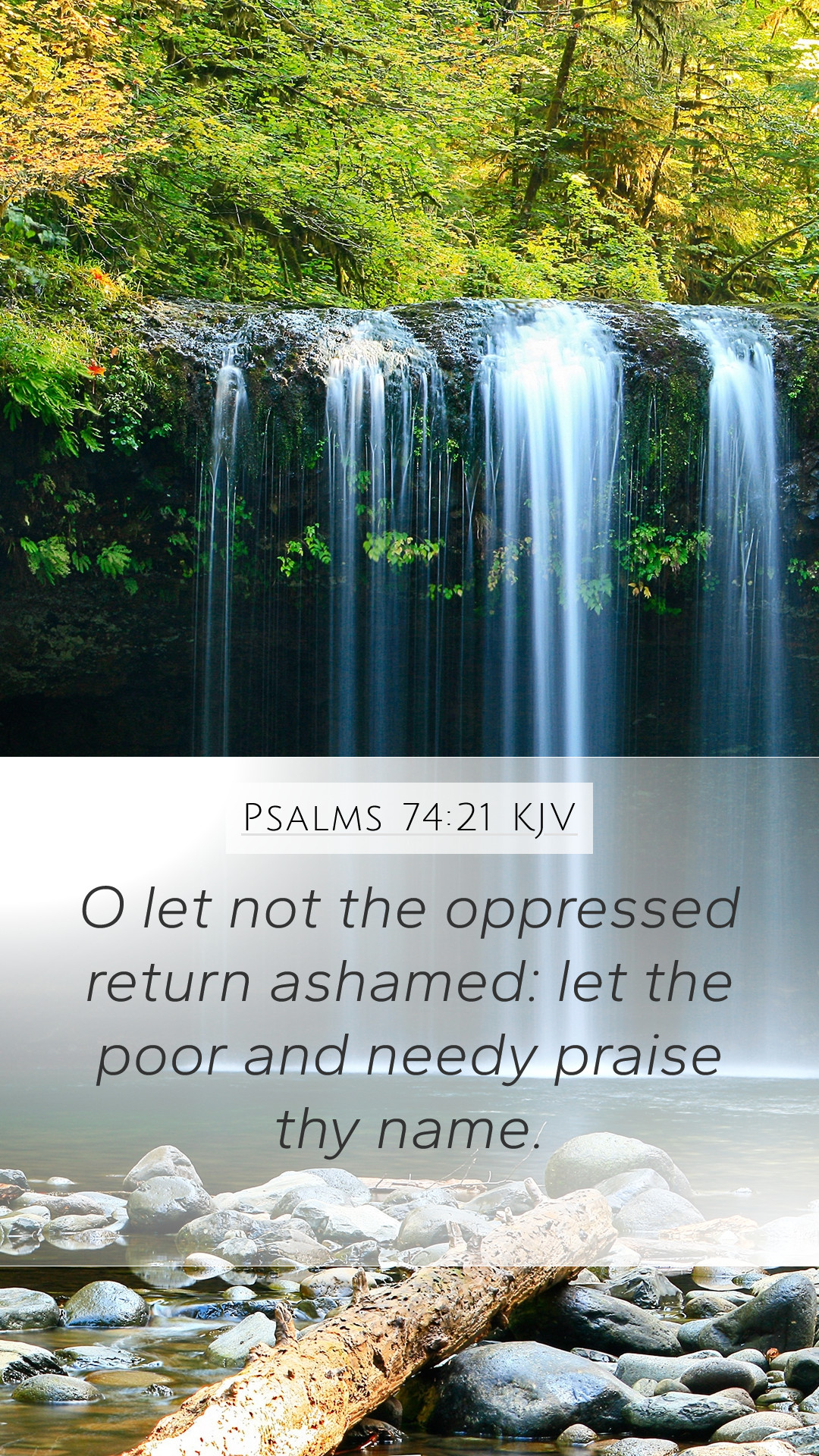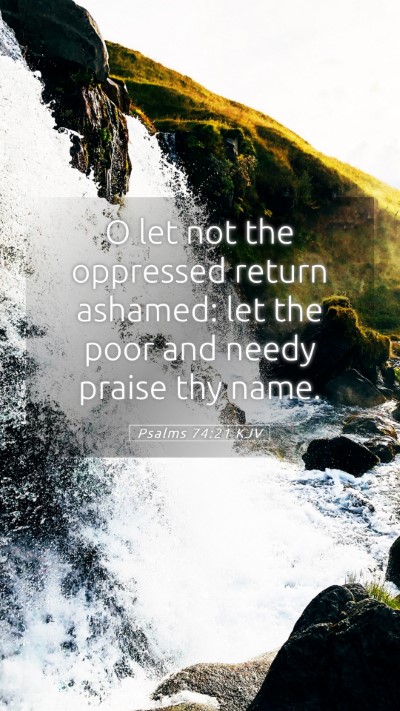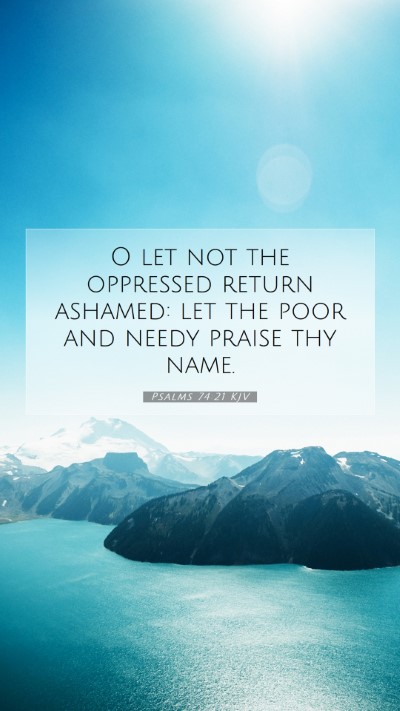Psalms 74:21 - Understanding the Verse
Psalms 74:21 states: "O let not the oppressed return ashamed: let the poor and needy praise thy name." This verse brings forth deep emotional and spiritual insights, emphasizing the themes of hope, despair, and divine justice.
Verse Summary
In this powerful psalm, the Psalmist implores God for intervention in times of distress. The plea not to let the oppressed return ashamed indicates a desire for God to uphold justice and righteousness, revealing God's protective nature over the vulnerable.
Bible Verse Meanings
- Oppressed and Ashamed: The term 'oppressed' reflects those who are marginalized and suffering. The fear of returning 'ashamed' refers to a loss of dignity and hope. Matthew Henry illustrates that this shame is often compounded by societal neglect.
- The Poor and Needy: This group represents the destitute, underlining God's concern for those who lack resources. Albert Barnes comments on God's promise that those in need can find refuge in Him, underscoring the relationship between divine favor and humble recognition of need.
- Divine Praise: The latter part of the verse invites the needy to praise God's name. Adam Clarke notes that the act of praise serves as both a spiritual release and affirmation of faith, showing that worship can emerge even from dire circumstances.
Interpreting Psalms 74:21
This verse can be interpreted in various dimensions, bringing forth crucial Bible verse interpretations:
- Historical Context: In the backdrop of distress for Israel, the psalm reveals a yearning for God's justice in a time of exile and oppression.
- Spiritual Application: The verse speaks to believers today, providing profound Bible study insights regarding reliance on God in moments of vulnerability.
- God’s Faithfulness: In every challenge, the underlying message is God's unyielding presence and care for His people.
Significance of the Verse
The significance of Psalms 74:21 lies in its message of hope amidst suffering. It challenges readers to understand that God has a heart that is particularly attentive to the voices of the oppressed. Thus, this verse echoes the essence of Biblical exegesis as it encourages believers to trust in God's justice and mercy.
Cross References
To deepen your understanding, consider these related verses:
- Psalms 9:12 - "When he maketh inquisition for blood, he remembereth them: he forgetteth not the cry of the humble."
- Psalms 37:14 - "The wicked have drawn out the sword, and have bent their bow, to cast down the poor and needy, and to slay such as be of upright conversation."
- Isaiah 41:17 - "When the poor and needy seek water, and there is none, and their tongue faileth for thirst, I the LORD will hear them; I the God of Israel will not forsake them."
Bible Commentary Insights
Each of the public domain commentaries shines a light on various aspects of this verse:
- Matthew Henry: Highlights the divine protection over the oppressed and the tragic condition of the poor, stressing God's compassion.
- Albert Barnes: Focuses on the importance of praise, suggesting that in the midst of trouble, acknowledging God's goodness is vital for spiritual resilience.
- Adam Clarke: Emphasizes the essential role of community in uplifting the needy, suggesting that true faith results in collective action towards justice.
Application of the Verse
For today's believers, applying this verse unfolds through practical actions:
- Engaging in social justice activism that supports the oppressed.
- Creating prayer initiatives focused on the needs of the marginalized.
- Fostering communities of support where individuals can share their burdens and receive help.
Conclusion
Psalms 74:21 serves as a poignant reminder of God's heart for the oppressed and the call for His people to respond with faith and action. By understanding this verse through careful Bible verse explanations, individuals can find encouragement and directions in their faith journey, recognizing their role in God’s plan for justice and mercy.
Further Study Recommendations
For those wanting to dive deeper into Scripture analysis, consider looking into:
- Bible study groups that focus on the Psalms.
- Online Bible study platforms that offer lessons focused on social justice themes.
- Comprehensive Bible study tools for thematic exploration of oppression and divine justice.


